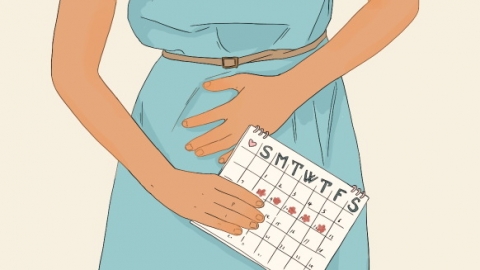How long will the menstrual period be delayed after taking contraceptive pills?
Generally, the delay in menstruation after taking contraceptive pills varies depending on the type of medication. Regular use of short-acting contraceptives usually does not cause a delay or only causes a delay of 1–3 days, while taking emergency contraception may delay the period by 7–14 days. Specific circumstances should be assessed based on the medication usage. Detailed analysis is as follows:

If short-acting contraceptive pills are taken regularly, the medication stabilizes hormone levels in the body. Most individuals will maintain a regular menstrual cycle without delays. A small number of people may experience a delay of 1–3 days initially due to their bodies adjusting to the hormonal changes, but subsequent cycles typically become more regular. However, if a dose of the short-acting contraceptive is missed, hormonal fluctuations may lead to a menstrual delay, which usually does not exceed seven days, and the cycle can gradually return to normal after taking the missed dose. If emergency contraception is taken, due to its higher hormone content, it may interfere with ovulation and hormonal balance, commonly causing a menstrual delay of 7–14 days. Some individuals may experience longer delays, but these generally do not exceed 21 days.
During contraceptive use, it is important to follow the instructions provided, avoiding missed doses. Maintaining a regular sleep schedule and reducing anxiety can help the body adapt to hormonal changes. If the menstrual delay exceeds the usual range and pregnancy has been ruled out, observation for 1–2 cycles is recommended, as most cases will resume naturally.





